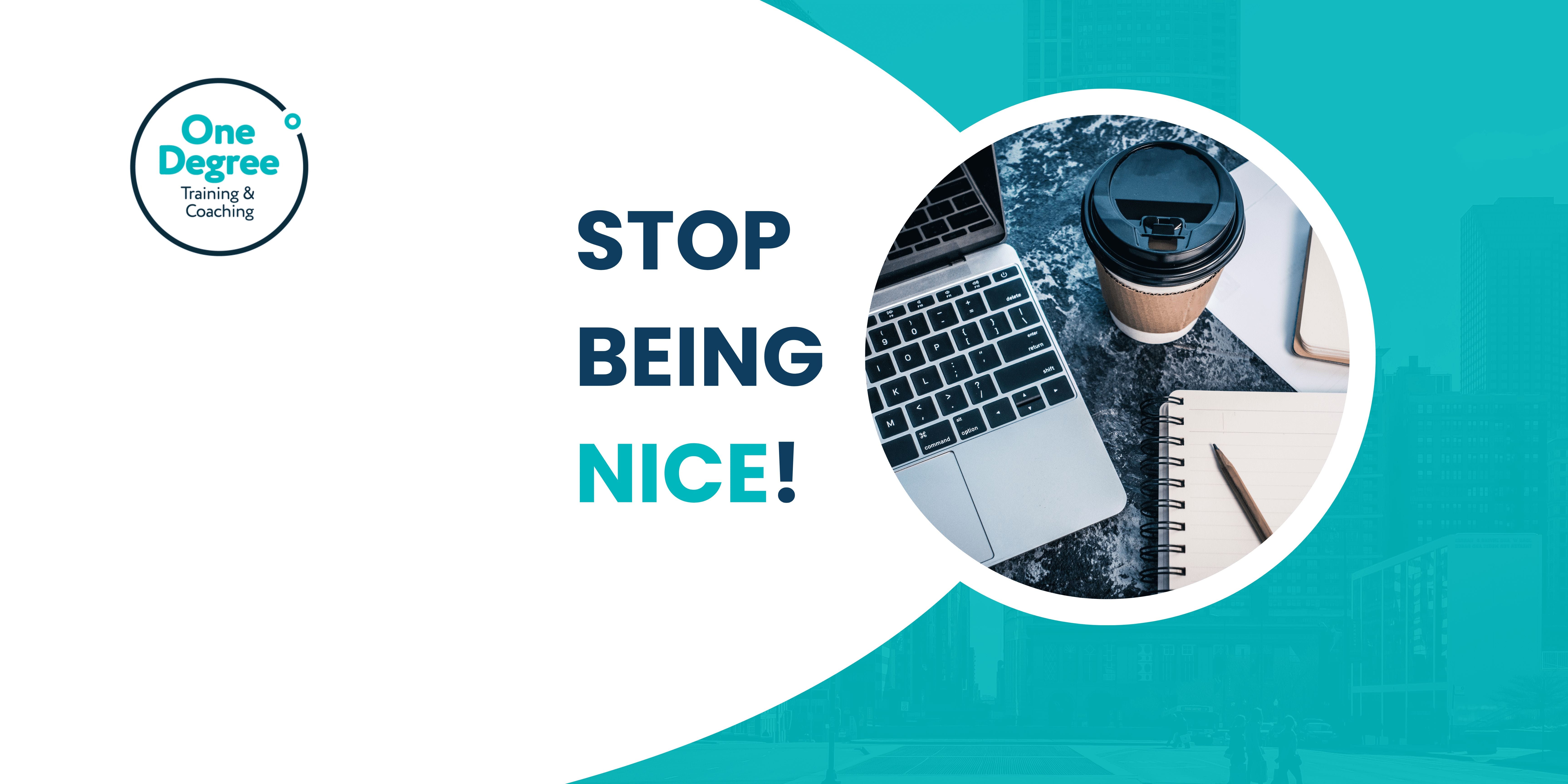Wait! I can’t mean that, can I? Surely, if we’re not nice, we won’t create a cohesive team.
Being a nice person comes with good intent. In fact, it comes with lovely intent. An intent to create a cohesive team, where people feel safe and welcome, able to talk about the things that are bothering them, etc.
Here’s the problem with being nice.
In my experience, the reality of being nice actually has the opposite effect.
When a team member approaches a nice leader for help, the nice person will tell them exactly what they need to do, and where to go for the resources. Potentially, they’ll even do some of the work for them. This leads to a reliance on the leader to solve problems, rather than a team capable of independent thought and problem solving.
A nice leader will accept a piece of work that’s below the required standards, and finish it themselves. This results in an under-appreciation of what the standards are, and stifles that individual’s growth & development.
Someone who acts nicely in Leadership will use phrases along the lines of “my amazing team”, even though their performance is (at best) satisfactory. Again, this gives a false appreciation of what “amazing” looks like.
During an annual appraisal, a nice leader will focus intently on where an individual has performed well and skip over the areas they need to improve. This over-inflates the sense of achievement for the individual making them believe they’re more capable than they are. This stunts their growth.
What leaders need to do instead, is act with kindness.
Kindness is having the difficult conversation with someone because it’s something they need to hear.
Kindness is telling someone they’re underperforming and helping them to understand what the requirements are and how they can improve.
When a team member approaches a kind boss with a problem, the boss will ask them how they would solve it and fill in any knowledge gaps.
A kind leader will speak publicly about what the team is amazing at, whilst admitting where things can be improved.
A kind leader will hold a performance appraisal, and while they will provide credit where it’s due, they’ll also ensure the individual knows what improvements need to be made if they want to fulfil their ambitions.
Being nice is easy. It takes no time whatsoever and it maintains a level of harmony. Unfortunately, being nice doesn’t improve anything. In fact, being nice can cause a retrograde in performance until the harmony becomes false and tension starts to grow.
Being kind is hard. It requires saying the things the other person needs to hear but doesn’t want to. Kindness creates uncomfortable situations and takes an investment in time. Kindness also creates independent, self-managing teams, who are multi-skilled and capable of high performance.
Don’t be a nice leader, be a kind one instead.





